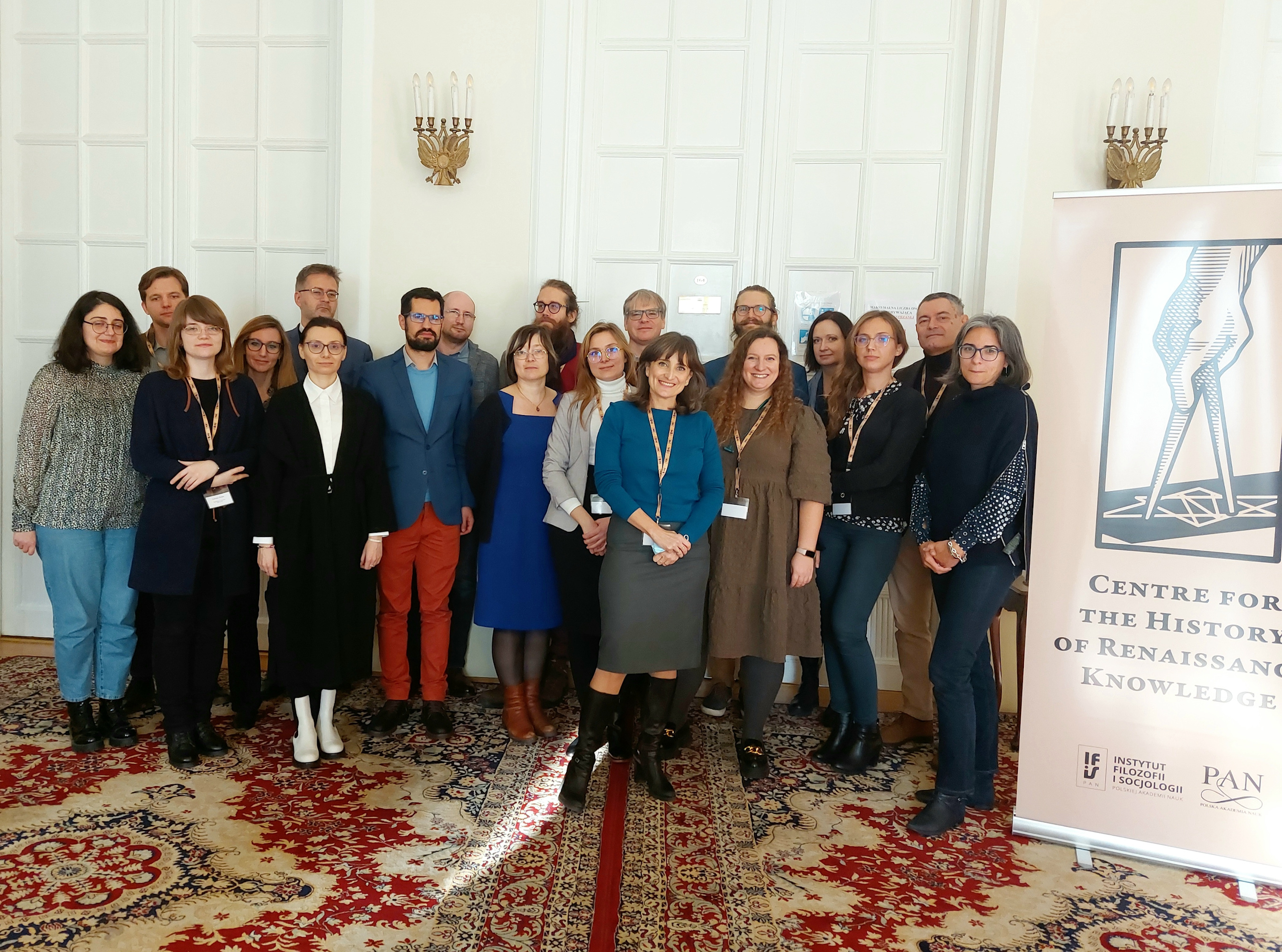On December 2-3, 2021, the first international workshop organized in the framework of the ERC project, KnowStudents, took place at our Centre in Warsaw, Poland.
The event was dedicated to the ‘Genres of academic note-taking: The many-facets of knowledge production in Medieval and Renaissance Europe‘ with the main goal of sharing the current research work through presenting one’s own case study regarding various documents created by university students in the given periods. The workshop was structured in three panels with five presenters each, and the final roundtable emphasizing the role of digital humanities in modern research. The program of the workshop can be found here.
The incredible advantage of the event were the attendees and among them scholars of three ERC projects:
- DEBATE (CoG, No. 771589) hosted by Scientific Research National Center in France, and focused on ‘Innovation as Performance in Late-Medieval Universities‘ identifying a neglected genre of latin texts that flourished on paper, the Principia, which record the public confrontations between candidates (socii) for the title of doctor. The PI of the project, Prof. Monica Brînzei, was its representative,
- NOTA (StG, No. 948152) placed in Babeș-Bolyai University, Romania, and standing for ‘Note-taking and Notebooks as Channels of Medieval Academic Dissemination across Europe‘, closely related to our project, with goal of studying a corpus of Latin manuscripts launching creative reflections on the motivation and the technical aspects involved in producing notebooks. Four scholars of this project welcomed to Poland being its PI, Prof. Alexandra Baneu, Prof. Anton Crișan, Dr. Florina Rodica Hariga, and PhD student Lavinia Grijac,
- KnowStudents (CoG, No. 864542) unveiling the ‘From East to West, and Back Again: Student Travel and Transcultural Knowledge Production in Renaissance Europe (c. 1470- c. 1620)‘ through investigating the relationship between academic and non-academic knowledge gathered in the students’ notebooks. All researchers involved in this project, as well as two our Fellows, Dr. Luisa Brotto (Ulam Programme – Seal of Excellence, NAWA) and Prof. Kristi Viiding (Ulam Programme, NAWA), took part in the workshop.
In addition to the above we hosted Prof. Matthias Roick, an intellectual historian and Affiliated Fellow of the Lichtenberg Kolleg, Göttingen’s Instititute for Advanced Studies at the University in Göttingen, Germany (who recently won PASIFIC Postdoctoral Fellowship Programme and will join our Centre in April 2022) and Dr. Raf Van Rooy, Marie Skłodowska-Curie fellow at the University of Oslo, working on the project ‘Between migration and linguistics: Greeks in Western Europe and the emergence of contrastive grammar in the Renaissance (c.1390–1600)’ (2021–23), also involved in the Magister Dixit project at the interdisciplinary research centre LECTIO at KU Leuven.

We are truly happy and satisfied with the outcome of the workshop, many thorough and passionate discussions, exchange of ideas and sources, and the possibility to learn about such diverse topics from scholars with very similar yet quite distinct backgrounds. We hope all participants share our feelings and look forward to future meetings and collaborations.
